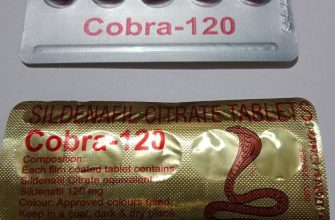Consult a healthcare professional before considering Viagra. A prescription ensures that you receive the correct dosage tailored to your needs. This medication, primarily used to treat erectile dysfunction, requires medical guidance to prevent potential side effects and interactions with other medications.
Understanding your health condition is crucial. Your doctor will evaluate your medical history and may conduct necessary tests to rule out underlying issues. These assessments help create a safe treatment plan. For many men, discussing sexual health can feel uncomfortable, but addressing these concerns openly with a doctor leads to effective solutions.
Receiving a prescription for Viagra can be a straightforward process. Many clinics offer telemedicine services, allowing you to consult with a licensed professional from the comfort of your home. This convenience helps overcome barriers to seeking help. After a consultation, if Viagra is deemed appropriate, your doctor will provide a prescription that you can fill at any licensed pharmacy.
Be vigilant about counterfeit medications. Always obtain Viagra through legitimate channels to ensure safety and efficacy. Follow your doctor’s instructions on usage and dosage closely. If you experience side effects or have concerns, reach out to your healthcare provider promptly for guidance.
- Viagra with Prescription
- Consultation and Assessment
- Obtaining Your Prescription
- Understanding Viagra and Its Uses
- How Viagra Works
- Potential Side Effects and Precautions
- Importance of a Prescription for Viagra
- Health Considerations
- Reducing Risks of Side Effects
- How to Obtain a Viagra Prescription
- Potential Side Effects of Viagra
- Common Side Effects
- Serious Side Effects
- Who Should Not Take Viagra
- Viagra Dosage Guidelines
- Administration Timing
- Special Considerations
- Interactions with Other Medications
- Insurance Coverage for Viagra Prescription
- Alternative Treatments for Erectile Dysfunction
Viagra with Prescription
Obtaining Viagra requires a prescription from a licensed healthcare provider. This process ensures that the medication is suitable for your condition and helps mitigate potential side effects. Consulting with a doctor allows for a thorough evaluation of your health history and any other medications you may be taking.
Consultation and Assessment
During your appointment, your doctor will discuss your symptoms and may perform specific tests to determine the underlying cause of erectile dysfunction. This assessment ensures that Viagra is the right option for you and helps address any medical concerns. Be prepared to share information about your lifestyle, including habits such as smoking and alcohol use, as well as any pre-existing health conditions.
Obtaining Your Prescription
Once the doctor prescribes Viagra, you can fill the prescription at a pharmacy. It’s crucial to follow the dosage instructions provided by your healthcare provider. Do not alter the recommended dose without consulting your doctor, as this can lead to adverse effects.
Understanding Viagra and Its Uses
Viagra, or sildenafil, is primarily used to treat erectile dysfunction (ED) in men. It enhances blood flow to the penis, facilitating an erection when sexually stimulated. This medication is available only with a prescription, ensuring that a healthcare provider evaluates your medical history and current medications to avoid potential interactions.
How Viagra Works
Viagra functions by inhibiting an enzyme called phosphodiesterase type 5 (PDE5). This action increases the levels of a chemical called cyclic GMP, which relaxes blood vessels and allows for increased blood flow to the penis. Timing is crucial; Viagra is typically taken 30 minutes to an hour before sexual activity and can last up to four hours, providing a window for sexual stimulation.
Potential Side Effects and Precautions
Common side effects include headaches, flushing, and indigestion. Severe reactions, although rare, can include sudden vision loss or hearing impairment. It’s important to communicate with your doctor about your full medical history, especially if you have cardiovascular issues or are taking medications that contain nitrates. Regular follow-ups are encouraged to assess the effectiveness and safety of the treatment.
Importance of a Prescription for Viagra
A prescription for Viagra plays a crucial role in ensuring safe and appropriate usage. Consulting with a healthcare provider guarantees that the individual receives a proper diagnosis and appropriate dosage. It helps to identify any underlying health issues that may require attention before using this medication.
Health Considerations
Certain medical conditions and medications can interact negatively with Viagra. Conditions like heart disease, low blood pressure, and liver or kidney impairments may lead to serious complications when using this medication. A healthcare provider evaluates these aspects, ensuring a safe treatment plan.
Reducing Risks of Side Effects
Obtaining Viagra through a prescription minimizes the risk of experiencing side effects such as headaches, flushing, or vision changes. With a prescription, healthcare providers can monitor how well the medication works and adjust the dosage if necessary. Additionally, they can advise on alternatives if Viagra isn’t suitable.
| Potential Risks | With Prescription | Without Prescription |
|---|---|---|
| Drug Interactions | Evaluated and advised | Unknown risk levels |
| Health Conditions | Assessed by a doctor | Potential complications |
| Dose Monitoring | Regularly adjusted | Static dose may cause issues |
| Side Effects Management | Guided by a healthcare professional | Self-managed risk |
Using Viagra responsibly through a prescription not only enhances safety but also promotes overall well-being. Prioritizing a consultation with a healthcare provider is a step towards informed and healthy choices regarding erectile dysfunction treatment.
How to Obtain a Viagra Prescription
Visit a healthcare provider for an evaluation. Schedule an appointment with a doctor who can assess your medical history and symptoms. This step ensures you receive personalized advice and treatment options.
Complete any necessary assessments. Your healthcare provider may perform a physical examination or request lab tests to rule out underlying health issues. These tests help determine if Viagra is appropriate for you.
Discuss your symptoms openly. Be honest about your erectile dysfunction and any related concerns. This transparency aids in proper diagnosis and aids your doctor in recommending the best course of action.
Review alternatives with your provider. If Viagra isn’t suitable, your doctor may suggest different medications or therapies. Understanding these options empowers you to make informed decisions about your health.
Request a prescription during your appointment. If your doctor determines that Viagra is right for you, they will provide a prescription. Ensure you ask any questions about dosages and potential side effects.
Take the prescription to a pharmacy. Choose a local pharmacy or an online service that fills prescriptions. Be sure to inquire about any discounts or insurance coverage options that may apply.
| Step | Action |
|---|---|
| 1 | Visit a healthcare provider |
| 2 | Complete necessary assessments |
| 3 | Discuss your symptoms |
| 4 | Review alternatives with your provider |
| 5 | Request a prescription |
| 6 | Take the prescription to a pharmacy |
Follow the prescribed instructions carefully. Adhere to the dosage and timing advised by your provider to ensure maximum effectiveness and minimize side effects.
Schedule follow-up appointments. Regular check-ins with your healthcare provider allow for assessment of the medication’s impact and adjustments as needed.
Potential Side Effects of Viagra
While Viagra can provide significant benefits in treating erectile dysfunction, it may also lead to side effects. Users should stay informed about these potential reactions to ensure safety.
Common Side Effects
The most frequently reported side effects include headaches, flushing, and upset stomach. Users often experience these symptoms shortly after taking the medication. Drinking water can help alleviate some of these discomforts.
Serious Side Effects
More severe side effects can occur, although they are less common. Symptoms such as sudden vision loss or hearing impairment warrant immediate medical attention. Chest pain or an erection lasting longer than four hours (a condition called priapism) also requires urgent care. If you notice any of these signs, seek help promptly.
Consult your healthcare provider about any pre-existing conditions or other medications. Staying informed and aware of how your body reacts can enhance your experience with Viagra and minimize risks.
Who Should Not Take Viagra
Individuals with cardiovascular issues should avoid Viagra. This includes those with severe heart conditions, such as unstable angina or recent heart attacks. The medication can affect blood pressure and increase the risk of complications.
Patients taking nitrates, often prescribed for chest pain, must steer clear of Viagra. The combination can lead to a dangerous drop in blood pressure.
Those with a history of strokes or severe liver or kidney disorders should consult their healthcare provider before using Viagra, as these conditions may impact the drug’s metabolism and excretion.
Men with certain eye conditions, such as retinitis pigmentosa or severe vision loss, are advised against using Viagra due to the risk of sudden vision changes.
Additionally, individuals allergic to sildenafil or any of the components in Viagra should not take the medication. Always discuss your complete medical history with a healthcare professional to ensure safety when considering Viagra.
Viagra Dosage Guidelines
Doctors typically prescribe Viagra in doses of 25 mg, 50 mg, or 100 mg. Start with a 50 mg dose as a common recommendation. Adjust the dosage based on individual effectiveness and tolerance, allowing at least 24 hours before taking another dose. Avoid exceeding 100 mg in a single dose.
Administration Timing
Take Viagra approximately 30 to 60 minutes before sexual activity. This allows sufficient time for the medication to start working. Note that Viagra does not work without sexual stimulation.
Special Considerations
Individuals over 65 years or those with certain health conditions may require a lower starting dose, such as 25 mg, to ensure safety. Always consult with a healthcare provider for personalized advice, especially if you take medications for other conditions or have significant health issues.
Interactions with Other Medications
Viagra can interact with various medications, impacting its effectiveness and safety. Common interactions occur with nitrates, often prescribed for chest pain. Combining these can lead to a severe drop in blood pressure. It’s crucial to avoid taking Viagra if you are on nitrate medications, including nitroglycerin, isosorbide dinitrate, or isosorbide mononitrate.
Alpha-blockers, used for high blood pressure or benign prostatic hyperplasia, can also pose risks. Taking Viagra alongside these medications may enhance blood pressure-lowering effects, creating dizziness or fainting. Consult with your healthcare provider before starting Viagra if you are on alpha-blockers.
Lastly, certain antifungal treatments, like ketoconazole, and some antibiotics, such as erythromycin, may increase Viagra levels in the body. This can heighten side effects. Always discuss your full medication list with your doctor to assess any potential interactions before using Viagra.
Insurance Coverage for Viagra Prescription
Most insurance plans provide some level of coverage for Viagra prescriptions, although the specifics can vary significantly. To determine your coverage, follow these steps:
- Review your insurance policy for prescription drug benefits. Check if erectile dysfunction medications are included.
- Contact your insurance provider directly. Ask if Viagra requires prior authorization or if it is classified as a tier medication.
- Consult your healthcare provider. They can help you understand your options and may suggest alternative treatments covered by your plan.
Many insurance plans limit coverage to a certain number of doses per month. Be aware of the maximum quantity allowed and what your out-of-pocket costs will be.
- Generic options: Generic sildenafil may be covered, offering a more affordable alternative to brand-name Viagra.
- Failure of other treatments: Some insurers require documentation proving that other erectile dysfunction treatments have been ineffective.
- Eligibility criteria: Check if your plan has criteria that must be met, such as age restrictions or medical history documentation.
Using a pharmacy that is in-network with your insurance can help reduce costs as well. Always keep receipts for your medications and communicate with your provider about any financial concerns you may have.
Alternative Treatments for Erectile Dysfunction
Consider vacuum erection devices (VEDs) as a non-invasive option. These devices create a vacuum that draws blood into the penis, allowing for an erection. After achieving the desired firmness, a constriction ring is placed at the base to maintain it. VEDs are simple to use and have been effective for many men.
Pelvic floor exercises also play a significant role. Strengthening the pelvic muscles can improve blood flow and enhance erectile function. Kegel exercises, commonly associated with women, are beneficial for men too. Aim for three sets of ten contractions daily to strengthen these muscles.
- Ginseng: Research indicates that Panax ginseng can improve erectile function. Taking 600-1,000 mg daily may yield positive results.
- L-arginine: This amino acid boosts nitric oxide production, promoting better blood flow. A daily dose of 5,000 mg can enhance sexual performance.
- Ashwagandha: Known for its adaptogenic properties, ashwagandha might help reduce stress and anxiety, improving overall sexual health. A typical dosage is around 300 mg daily.
Acupuncture may also provide benefits. Some studies suggest that it can help men with erectile dysfunction related to psychological factors. Sessions with a skilled practitioner can alleviate stress and improve circulation.
Discuss prescription medications with your doctor as they can offer effective solutions. Options like sildenafil (Viagra) and tadalafil (Cialis) work to enhance blood flow, making erections easier to achieve. Ensure a thorough discussion is held regarding any underlying health issues.
Finally, lifestyle changes can lead to significant improvements. Regular exercise, a balanced diet, limiting alcohol, and quitting smoking can strengthen overall health and improve sexual function. Aim for at least 150 minutes of moderate aerobic activity each week.
By exploring these alternative treatments, you can take charge of your health and work towards a fulfilling sex life.










